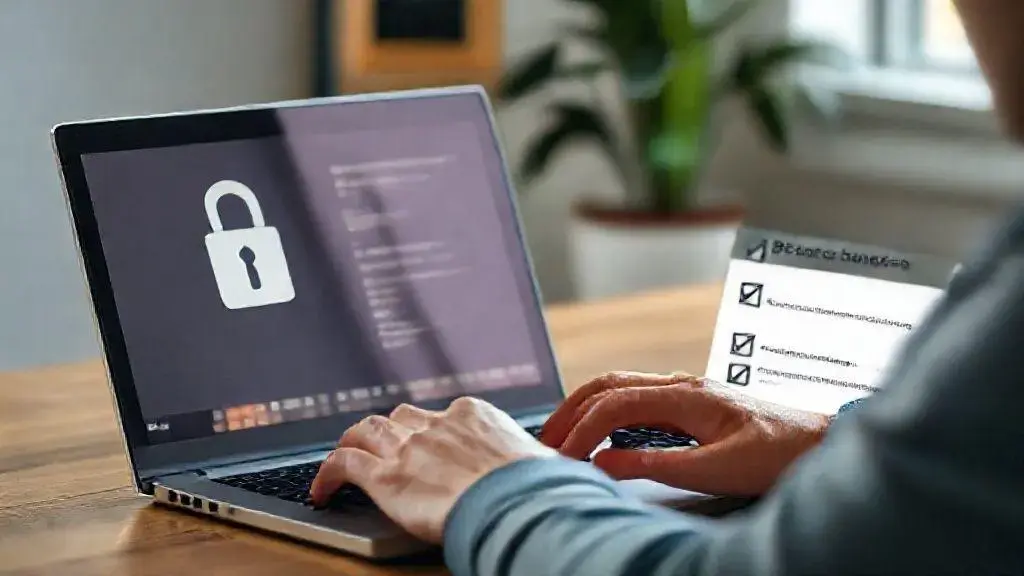Social media privacy regulations: What you need to know

Social media privacy regulations are laws designed to protect users’ personal information by governing data collection, usage, and security on online platforms, empowering users with rights over their data.
Social media privacy regulations are becoming crucial in our digital age. With constantly changing laws, have you considered how these rules impact your online safety? Let’s dive into the details.
Understanding social media privacy regulations
Understanding social media privacy regulations is essential for anyone using online platforms. These rules are designed to protect users and ensure that their information is secure.
What Are Social Media Privacy Regulations?
Social media privacy regulations refer to laws and guidelines that govern how companies collect, store, and use personal data. They aim to provide users with control over their own data.
Key Components of These Regulations
- Data collection: Companies must inform users about what data is being collected.
- User consent: Users should give permission before their data is used.
- Data security: Companies are responsible for keeping user data safe from breaches.
- Right to access: Users have the right to access their own data and request changes.
The regulations are continuously evolving. For instance, the General Data Protection Regulation (GDPR) in Europe has set a strong precedent for data protection worldwide. Similar laws are being introduced to enhance user privacy in many regions.
Users should be aware of their rights. Knowing how regulations affect your data can empower you to make safer choices online. Always read privacy policies when signing up for new platforms.
How to Stay Informed
Keeping up with changes in social media privacy regulations can be daunting. Follow blogs, subscribe to newsletters, and join forums that focus on data privacy. Staying informed helps you understand your rights and the responsibilities of the platforms you use.
Key regulations to be aware of

When discussing social media privacy regulations, there are several key regulations that everyone should be aware of. These laws are designed to ensure the protection of personal information and give users more control over their data.
General Data Protection Regulation (GDPR)
The GDPR is one of the most comprehensive data protection laws in the world. Enforced in the European Union, it gives users greater rights regarding their personal data and holds companies accountable for their data practices. Notably, it requires companies to seek consent before collecting data and to inform users about how their data will be used.
California Consumer Privacy Act (CCPA)
Another important regulation is the CCPA, which applies to businesses that collect personal information from California residents. This law allows consumers to know what personal data is being collected and gives them the right to delete this data and opt out of its sale.
Health Insurance Portability and Accountability Act (HIPAA)
For those in the healthcare industry, HIPAA governs the privacy and security of medical information. It establishes standards for protecting sensitive patient data and requires healthcare providers to implement safeguards.
- Data Breach Notification Laws: Many states have laws that require companies to notify users in the event of a data breach.
- Children’s Online Privacy Protection Act (COPPA): This federal law protects the privacy of children under the age of 13 online.
- International regulations: Countries like Canada and Australia also have their own privacy laws that may impact how companies operate.
With the growing emphasis on data protection, understanding these regulations is crucial. By staying informed, users can take necessary steps to protect their privacy and make safe choices online. Being aware of your rights under these regulations empowers you in the digital world.
Impact of regulations on users
The impact of regulations on users is significant in today’s digital world. As privacy laws evolve, they directly affect how individuals interact with social media platforms.
Enhanced User Control
One major impact is that users gain more control over their personal information. Regulations require companies to be transparent about data collection practices. Users now have the right to access their own data, knowing exactly what is collected and how it’s used.
Increased Accountability for Companies
With stricter regulations, social media companies are held accountable for protecting user data. If a company fails to comply, it faces hefty fines and legal repercussions. This encourages companies to prioritize user privacy and security.
- Stronger Data Protection: Users benefit from improved security measures as companies implement stronger protocols to safeguard personal information.
- Informed Consent: Many regulations require companies to obtain explicit consent from users before collecting data.
- Right to Erasure: Users can now request the deletion of their personal data, giving them more control over their digital footprint.
Another impact is the shift in how users perceive privacy. Awareness of rights leads to more cautious behavior online. Users are more inclined to read privacy policies and understand the implications of sharing personal information.
Regulations also promote a culture of trust. When companies take steps to safeguard user data, it builds confidence among users. This trust encourages more active participation on social media platforms.
Best practices for protecting your privacy

Protecting your privacy online is crucial in a world where data breaches are common. By following the best practices, users can safeguard their personal information more effectively.
Use Strong Passwords
One of the simplest ways to protect your privacy is to create strong passwords. A strong password includes a mix of letters, numbers, and symbols. Avoid using easily guessed information like birthdays or names.
Enable Two-Factor Authentication
Two-factor authentication (2FA) adds an extra layer of security. It requires a second form of verification, typically a code sent to your phone, in addition to your password. This makes it harder for unauthorized users to access your accounts.
- Stay Informed: Regularly updating yourself on the latest privacy regulations helps you understand your rights.
- Limit Personal Information: Think twice before sharing personal details on social media. Less information shared means less risk.
- Review Privacy Settings: Regularly check and adjust your privacy settings on social media and online accounts.
Besides these tips, using a virtual private network (VPN) can keep your online activity private. A VPN encrypts your internet connection, making it more difficult for third parties to track you.
Be cautious with public Wi-Fi. Always avoid accessing sensitive information when connected to unsecured networks. Instead, use cellular data or a VPN for added protection.
Regularly updating your software is another essential step. Software updates often include security enhancements that protect against new threats. Keep your devices, browsers, and apps updated to maintain the highest level of security.
In conclusion, understanding and following social media privacy regulations is vital for protecting your personal information online. By implementing best practices, such as using strong passwords, enabling two-factor authentication, and staying informed about your rights, you can significantly enhance your online privacy. As these regulations continue to evolve, being proactive will empower you to navigate the digital world more safely and confidently.
FAQ – Frequently Asked Questions about Social Media Privacy Regulations
What are social media privacy regulations?
Social media privacy regulations are laws that govern how personal data is collected, used, and protected by social media platforms.
Why is it important to protect my privacy online?
Protecting your privacy online helps prevent identity theft, data breaches, and unauthorized access to your personal information.
How can I ensure my social media accounts are secure?
You can secure your accounts by using strong passwords, enabling two-factor authentication, and regularly reviewing privacy settings.
What rights do I have regarding my personal data?
You have the right to access your data, request its deletion, and be informed about how your data is being used by companies.





